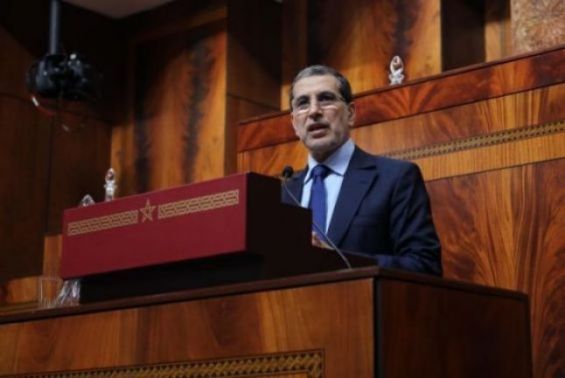The American recognition of Morocco's sovereignty over the Sahara is a «historic and significant change» and an «unprecedented diplomatic victory», Head of government Saadeddine El Othmani said on Monday.
Speaking at the House of Representatives, El Othmani stressed that this is «a national cause, which has seen sacrifices before and after the Independence».
Praising the «efforts of late King Mohammed V and those of his son late Hassan II», the head of government highlighted the «enlightened vision and policy of King Mohammed VI», referring to a 2014 royal speech.
«The American announcement which recognizes Morocco’s sovereignty over the Sahara is a big step and part of the diplomatic victories achieved by Morocco. We should be proud of it», he said.
«Thanks to royal directives, Moroccan diplomacy has achieved sizeable achievements, which confirm its efficiency and adaptability», he said.
«Work must continue and be done on several levels to put an end to this artificial conflict», he pleaded, recalling the great achievements of Morocco on this matter.
El Othmani referred to the opening of 19 consulates in Dakhla and Laâyoune, seeing in them «an official recognition of these countries of Morocco’s sovereignty over the Sahara». El Othmani recalled the agreements signed between Morocco and the United Kingdom as well as with Russia for fisheries, which «also include the Sahara».
American statement and outlook
El Othmani stressed that 164 states do not recognize the Polisario, while more than 75 countries around the world have welcomed the military operation and the reopening of the Guerguerate border crossing, before referring to Algeria.
«No country has encouraged the blockade apart from Algeria, whose media published false information as part of a campaign that our press was able to counter.The Polisario even continued its harassment by announcing it was breaking the cease-fire and releasing fake news and fake information».
The Head of government addressed the American recognition of Moroccan sovereignty over the Sahara and the latest developments following it, such as the preparations launched for the opening of the United States consulate in Dakhla.
«These are actions that reflect the seriousness of the subject and Morocco's efforts to translate them into the field. Morocco has therefore turned the page on the difficult years marked by the American position on the Sahara conflict», he said.
«Algeria faces its responsibilities»
«This announcement did not come just like that, but from efforts of the Moroccan diplomacy in the United States», he said, adding that «the American decision and the weight of the United States will push other nations to follow suit».
While also returning to the Sahara issue at the UN and resolution 2548 adopted by the Security Council in October, El Othmani recalled that «Algeria, cited 5 times in this resolution, has been put before its responsibilities, so that it remains involved in the process».
«Morocco will continue to engage in UN efforts aimed at relaunching the political process on the basis of the parameters of the Security Council.He remains convinced that the operation will not succeed without the involvement of Algeria».
The Head of government also called for «consolidating the achievements», «encouraging Moroccans living abroad, especially those established in influential countries» to continue their mobilizations for the national cause, «to double diplomatic efforts so that other countries follow the United States» and «double vigilance against enemy campaigns».
El Othmani carefully avoided addressing the second part of the Moroccan-American agreement with regards to Israel.





 chargement...
chargement...













